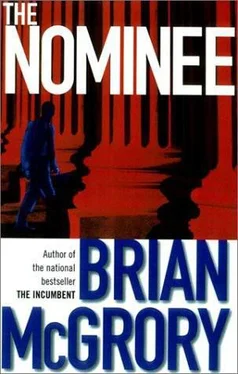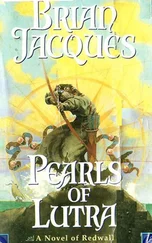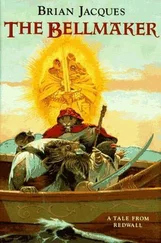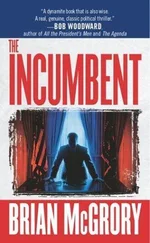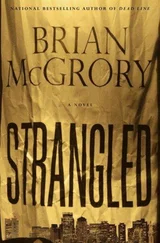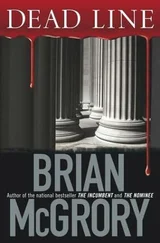I pulled into Marshton without the white Cavalier anywhere in sight. I jumped off the highway onto Waterview Boulevard, though the only water to view seemed to be that damned swamp on one side of the divided road. I guess you have to credit the prescient town fathers for not calling their home Swampton. A mile or so down the road, just as my MapQuest directions said I would, I arrived at a complex called Serenity Heights.
Once there, I pulled into a community of tiny, cookie-cutter houses that sat on minuscule lots tight to the street. It was, in its defense, immaculate. You could eat stewed prunes right out of the gutters — not that you’d want to, but like I said, you could.
I took a left on Pleasant Street, went through the intersection with Hereafter Boulevard — just kidding — and turned right on Tranquility Road, where I found Sweeney’s house, which was just like every other house — nondescript, shaped like a box, and small. The Buick Park Avenue sitting under the carport told me he was home, or at least somebody was.
I looked at myself in the rearview mirror and saw that my hair, mostly dry, was stiff and rigid from the swamp. My face was streaked with caked crud, as if I had just been thrown out of a spa in the middle of a mud wrap because the receptionist realized I wouldn’t be able to pay. My clothes, still damp, carried the odor of a men’s room at Fenway Park toward the end of an extra innings game. It would be nothing short of a miracle if I could convince Hank Sweeney that, (a) I wasn’t a vagrant seeking a handout, and (b) he should talk to me. In my present condition, I don’t think Oscar Madison would invite me inside.
Here’s what I know about homicide detectives: They spend their lives on the edge of the darkest abyss. They tiptoe across the spattered blood of freshly killed babies, kneel beside the mutilated corpses of beautiful young women, engage in idle chitchat with suspects who have inexplicably strangled the life out of the only person they may ever love. The good ones go home and coach Little League games and attend PTA meetings between telephone calls summoning them to yet another scene of still another horrific crime. The bad ones sit back night after night with a bottle of whiskey or a 12-pack of cheap beer getting shamelessly, stupidly drunk.
The best of them are the most creative members of a profession better known for regulation than invention. They can save lives and change worlds by the discovery of a single strand of hair, a microscopic fiber, or a cigarette butt discarded in a nearby sewer. They see a room forever marked by death and imagine the last pitiful moments of life. They look at a suspect, perhaps a suburban high school kid or an otherwise successful husband, and slowly, methodically, deconstruct the boundaries separating good and evil and imagine just how far over the division this creature might have passed — and what sent him over the line.
To a man, and, okay, woman, though there aren’t many of those, they are more moneyed than the average cop because of all the overtime calls in the godforsaken hours of the early morning. Homicide isn’t a 9–5 job. Many of them wear bespoken suits and expensive Italian ties to make certain that no one confuses them with their carefully regimented brethren cops on the street or the suspects they’re so eager to throw in jail. They are at the top of the order, the fighter pilots of the police force, and they want you to know it.
I walked down the small driveway aside the perfectly neat little lawn, which, all in all, wasn’t exactly what I had expected of someone who had reached such an august position. The air wasn’t just hot. It was like climbing inside a pig’s anus and sloshing around in his lower intestine, that’s how hot and humid it was. I felt little streams of sweat carve lines in the drying dirt on my forehead. Still, his side door sat open, with only an aluminum screen door separating Sweeney from the thronging masses, which in this case, was me, so I knocked on the metal border. Within seconds, I could see the vague outline of a large black man ambling toward the door in that stiff gait that some older men have — heavy on the left side, then heavy on the right. As he got closer, I could see he was holding a newspaper in one hand and had reading glasses slung low over his nose. Maybe this is what all those consultants mean when they tell us reporter types that our readership was literally dying off.
“Yes?” he said, slowly with a hint of amusement.
It occurred to me that they probably got their fair share of traveling Bible salesmen, life insurance peddlers and snake oil con men in these parts, and given my current appearance, I probably looked like the worst of the lot.
“Mr. Sweeney?” I asked.
He kept the screen door closed between us. “That’s me,” he said, his amusement transforming to skepticism.
Already, from his tone and stance, I knew I could at least engage him, and if I could engage him, then chances were vastly improved that I could sway him, and possibly, eventually, move him. Far better he be like this than some by-the-numbers, just-the-facts-ma’am Joe Friday types who wouldn’t tell me if my shirt was on fire unless Rule VIa., second paragraph in the Department Handbook told them that even in retirement, they were required to.
I gave him my most polite voice, shaped and sorted from years of schooling at the hands of strict nuns in the parochial schools on the not-so-mean streets of South Boston.
“Sir, you don’t know me, but my name is Jack Flynn, and I’m from Boston.”
He replied, “Yeah, I do. You’re the writer for theRecord. You used to be in Washington, and now you do a lot of investigative stuff. Liked your stories on the president.” Real casual, almost matter of fact, like it was the most normal thing in the world that I’d show up at his house covered in swamp water to shoot the breeze. Still, the door remained shut between us.
“I am, and thank you,” I said, unable not to smile at the guy. I regained my footing. “Please pardon my appearance. I just had an unfortunate incident in your town’s namesake marsh. I’m hoping you might be able to help me.”
Still no invitation, or even a move to open the door, which did not bode well. If he didn’t shake my hand or make direct eye contact without a screen between us, it would be one hell of a lot easier for him to send me on my way.
“Me help you?” He started laughing a chesty laugh. “An old guy like me living in a swamp village in this hellish outback can help a young buck like you? I can’t wait to hear this.”
“It’s about our former publisher,” I said, calmly, sincerely. “John Cutter. Some questions have arisen, and I think you might be able to answer them.”
He just kind of stood there behind that screen like a priest in a confessional.
I asked, “Is this a bad time or do you have a few minutes to talk.”
“Son, I ain’t got nothing but time.”
The door stayed shut.
I had an idea. “I want to show you something,” I said, and turned around and trotted to the car, grabbed that day’sRecord and a printout of the news clipping on John Cutter’s death, and returned, hoping to bait him outside.
I’m brilliant. He pressed on the handle, turned back into the kitchen and yelled, “Mother, I’ll be in the yard for a minute,” and came outside. Breakthrough.
He was, indeed, a very large man, not fat, just big all over, tall with broad shoulders and a barrel chest and something of a gut that didn’t look bad and almost looked good, given the enormity of his frame. He had a full head of grayish-black hair, dark and crinkled eyes, skin the color of bitter-sweet chocolate, and an expression on his face that said there wasn’t an awful lot in this life that he hadn’t already seen.
Читать дальше
